
ANDREA BUSFIELD
My Life-Changing Moment in the Hindu Kush Mountains
IN 2001, I travelled to Afghanistan to cover the “War on Terror” for the tabloid newspaper I worked for. I went armed with a sleeping bag, eight notebooks, a dozen pens, $10,000 in cash and no clue. Amazing then that it turned out to be one of the best experiences of my life.
I was living in London at the time and enjoyed the kind of trappings and lifestyle that often comes with a well-paid job in one of the most vibrant cities on earth. All of which meant I was ill prepared for glamping let alone a helicopter ride into a land lost in time.
Having flown to Dushanbe in neighbouring Tajikistan I had secured the safe passage of myself and my photographer into Afghanistan during an interview with the hugely charismatic Afghan leader, Haji Abdul Qadir.
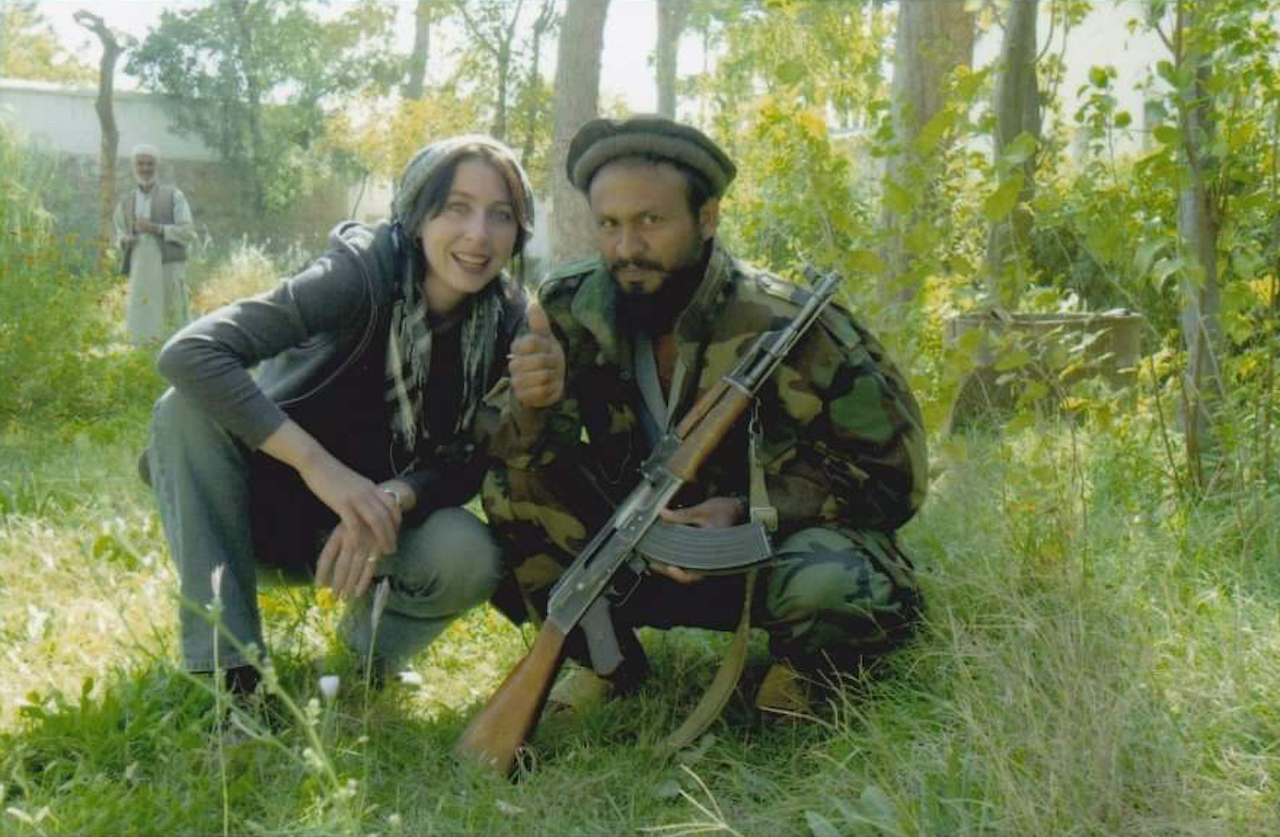
The former governor of Jalalabad had teamed up with the Northern Alliance who had been waging a war against the Taliban since the mid-90s. Qadir was now waiting in the wings, ready to return to his country and his old job. Little did I know when I interviewed him, he would go on to become the Vice President of Afghanistan.
Anyway, after an hour spent chatting in his hotel suite, it quickly became apparent that I was lacking in the conflict-zone smarts of most war correspondents and he offered to take me and my photographer into his country.
A few days later, true to his word, Haji Qadir organised our transport to the airport where we scaled a ladder and hauled ourselves into an old Russian helicopter that had seen better days. Resplendent with bullet holes, the interior was charmingly rustic with wooden benches framing what appeared to be part of the engine.
Friends Began Praying
As the helicopter took off, my Afghan host and his friends immediately began praying. They didn’t stop until we touched down on Afghan soil.
Our point of entry was Khwaja Bahauddin, an area in the Northern Alliance-controlled north that appeared to be little more than a dustbowl with no sit-down toilets. Bundled into a battered Russian jeep, the light was fading fast and I remember little more than our headlights bouncing off high mud walls and the startled eyes of a few old men and their donkeys.
Once the sun disappeared, the night was as black as I’d ever known it thanks to a dust storm that had raged over the region for the past two days obscuring even the stars.
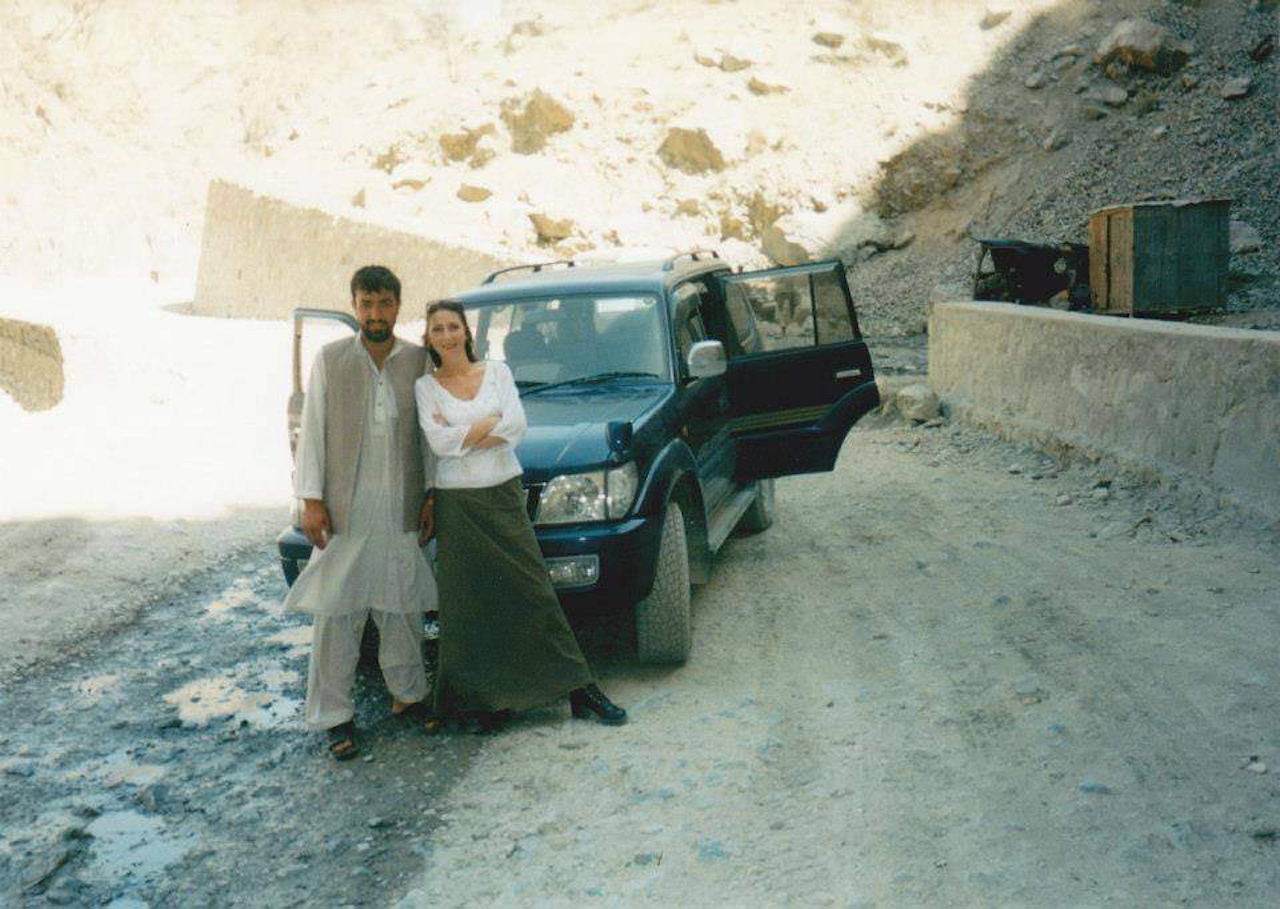
Entering some kind of military compound, my photographer and I were shown to a room with no beds or bathroom facilities, although it did come with a Japanese photojournalist who would be joining us on our trip to the frontline.
A couple of hours later, the Allies closed all airspace and began dropping their bombs on Taliban targets. I went to bed weary, wary and wondering what the hell I’d let myself in for.
The next day the dust lifted and once I’d cleaned my teeth, visited the local hole-in-the-ground and gone to the bazaar to equip myself with a headscarf and a transistor radio, we began a journey deeper into a country that would quickly carve a place into my heart as deep as any surgical incision. Afghanistan, in short, is breath-taking.
Cobalt Blue Skies
On leaving Khwaja Bahauddin, we wound our way up terracotta hills, climbing ever higher towards cobalt blue skies. Occasionally, the wheels of our jeep would lose their grip on the rubble roads emitting gasps of concern from my fellow travellers, but not me. This wasn’t bravado, I simply lack the right self-preservation gene to worry about what might be. Besides, our driver appeared to be of a fairly good age, and having survived thus far, I assumed he must know what he was doing.
As we travelled further into the country, we saw few signs of life beyond kids and old men. The women, I assume, were hidden behind the mud walls of the homes we passed, while the younger men must have left to form part of the war machine. So, it was old men, donkeys and the occasional bicycle.
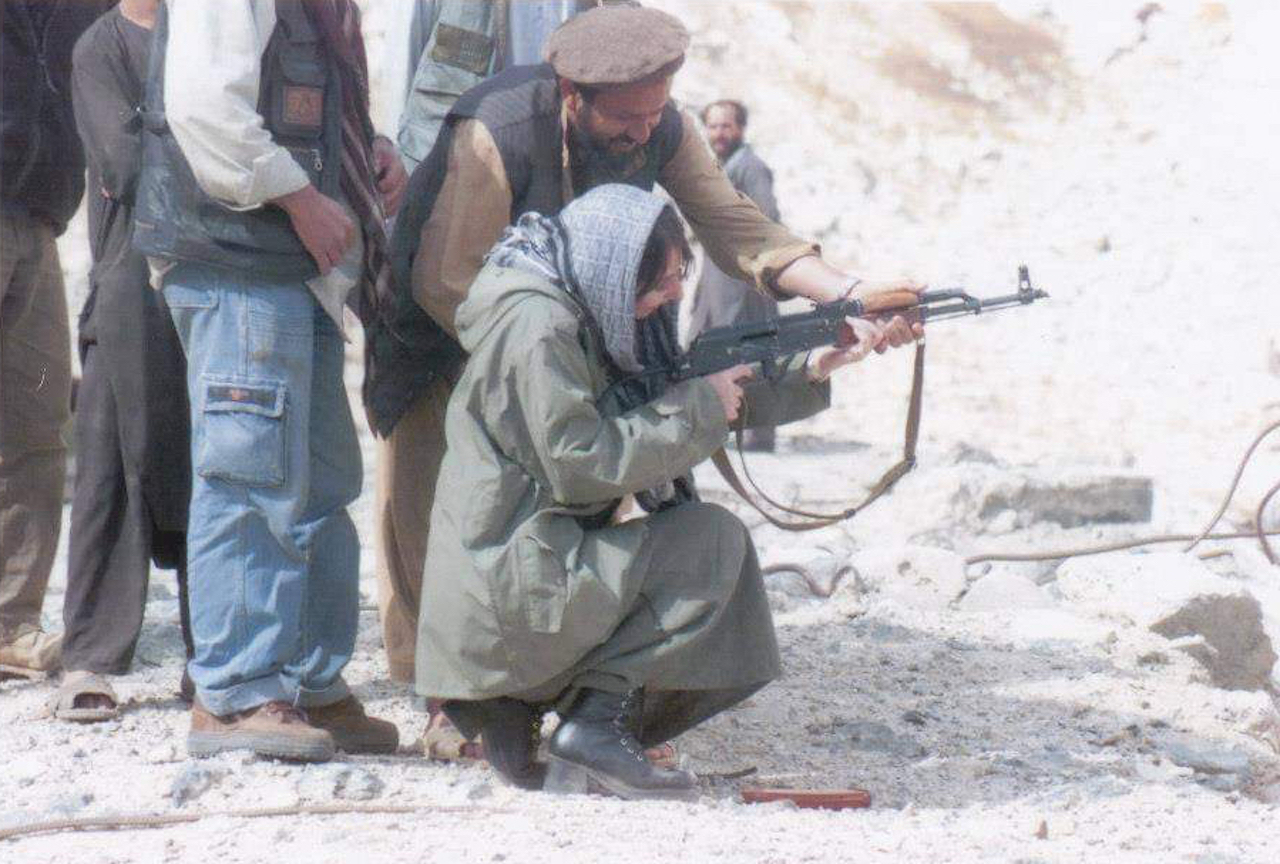
For three days we travelled, mostly grabbing sleep in the back of the jeep – bent forwards to protect our heads from banging against the roof as we covered the, often challenging, terrain.
For a few hours in the dead of night, we stayed at a hotel in Fayzabad, which looked picture perfect when we pulled up, standing next to a raging river and lit by a huge moon and a sky full of stars. Once we’d crossed the bridge on foot and entered the premises, the shine quickly came off the place. However, there comes a point when you’re actually so tired, you simply don’t care about the state of the toilets or the lack of linen on the beds. I also had my sleeping bag. It was enough.
Sleeping Next to Kalashnikovs
On the second night of our journey, I remember stumbling into a building in the pitch dark and being wordlessly directed to a bed in the corner of a room. At the break of dawn, the call to prayer sounded and I opened my eyes to discover I was sharing the room with 40 men or more, all sleeping next to their Kalashnikovs.
However, it was another evening, after we had driven ever higher into the Hindu Kush mountains, slipping and sliding along the fabled Anjuman Pass, that I knew beyond all doubt that I was having a once-in-a-lifetime experience.
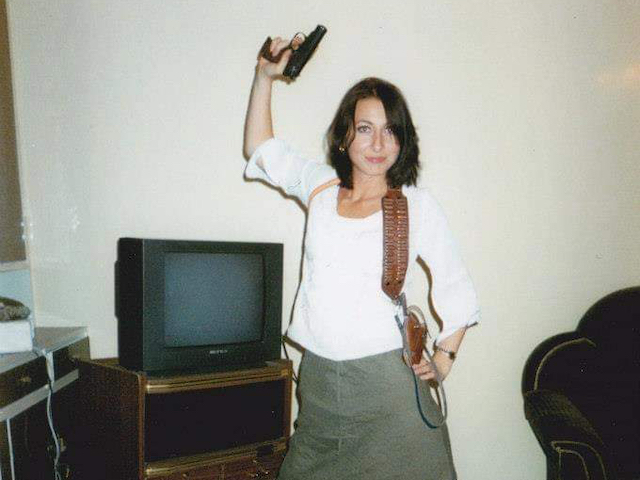
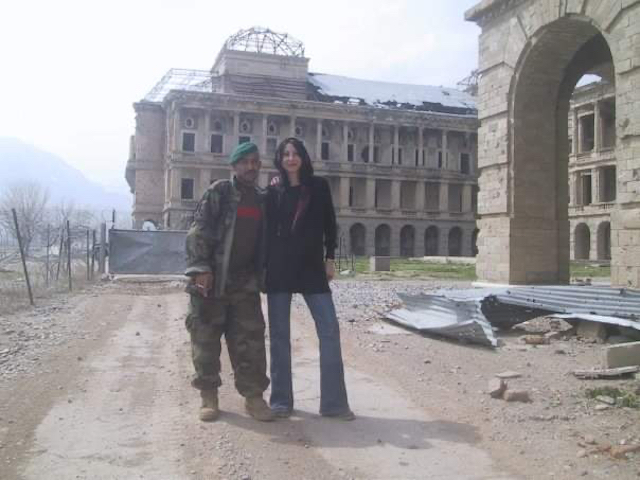
The Pass connects the northern province of Badakhshan to the Panjshir Valley, which lies a little north of Kabul. Some 4,430m above sea level, the road is hold-your-breath narrow and only accessible by 4x4s and donkeys. The cliff edge is sharp as a knife blade with falls that offer no hope of survival. And as this is a journey that lasts hours rather than minutes, it becomes easier to close your eyes than keep watching, and eventually I fell asleep.
Sometime later I was woken by the driver and our translator. They were stopping for tea and wanted to know whether their foreign guests would like to join them. Both my photographer and our Japanese friend declined the offer, preferring to sleep, and this was to be their big loss of the trip because once I stepped out of the jeep I found myself standing on top of the world.
Close to Magic
It was dusk and as far as the eye could see were mountains, their tops peaking above a bed of clouds, glowing bronze in the fading sun. The scene was as beautiful as anything I had ever encountered and it felt as close to magic as I’ve ever come. I was heading to a conflict zone and yet I was overwhelmed by a sense of peace. I was a minnow standing on the shoulders of giants and it struck me that this was the truth of the world – not the distorted parody of living that I had left behind and below.
A little in front of us was a small stone hut, no bigger than an outhouse, with a black curtain serving as a door. I walked inside – much to the surprise of the dark bearded gentlemen sat there, drinking tea by a small fire – and it felt like I was standing at the threshold of something new. Nearly two decades later, I can see I was right.
Afghanistan changed me. It opened my eyes to another desperate and yet richer reality and it made me a better person. Gradually, my goals and ambitions changed. The idea of living a contented life became the dream to strive for – and it started the moment I stepped out of a battered Russian jeep onto a bed of clouds hanging over one of the most dangerous countries in the world.
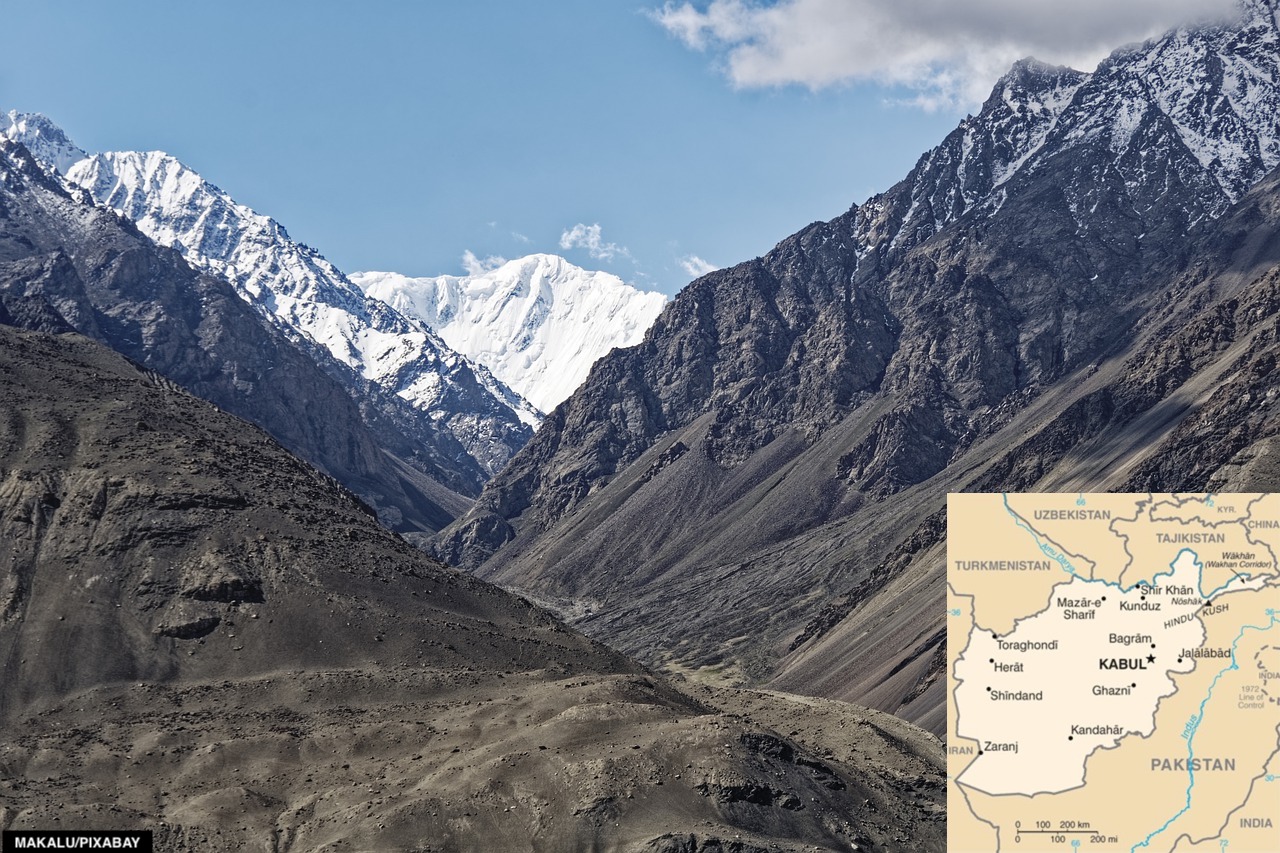
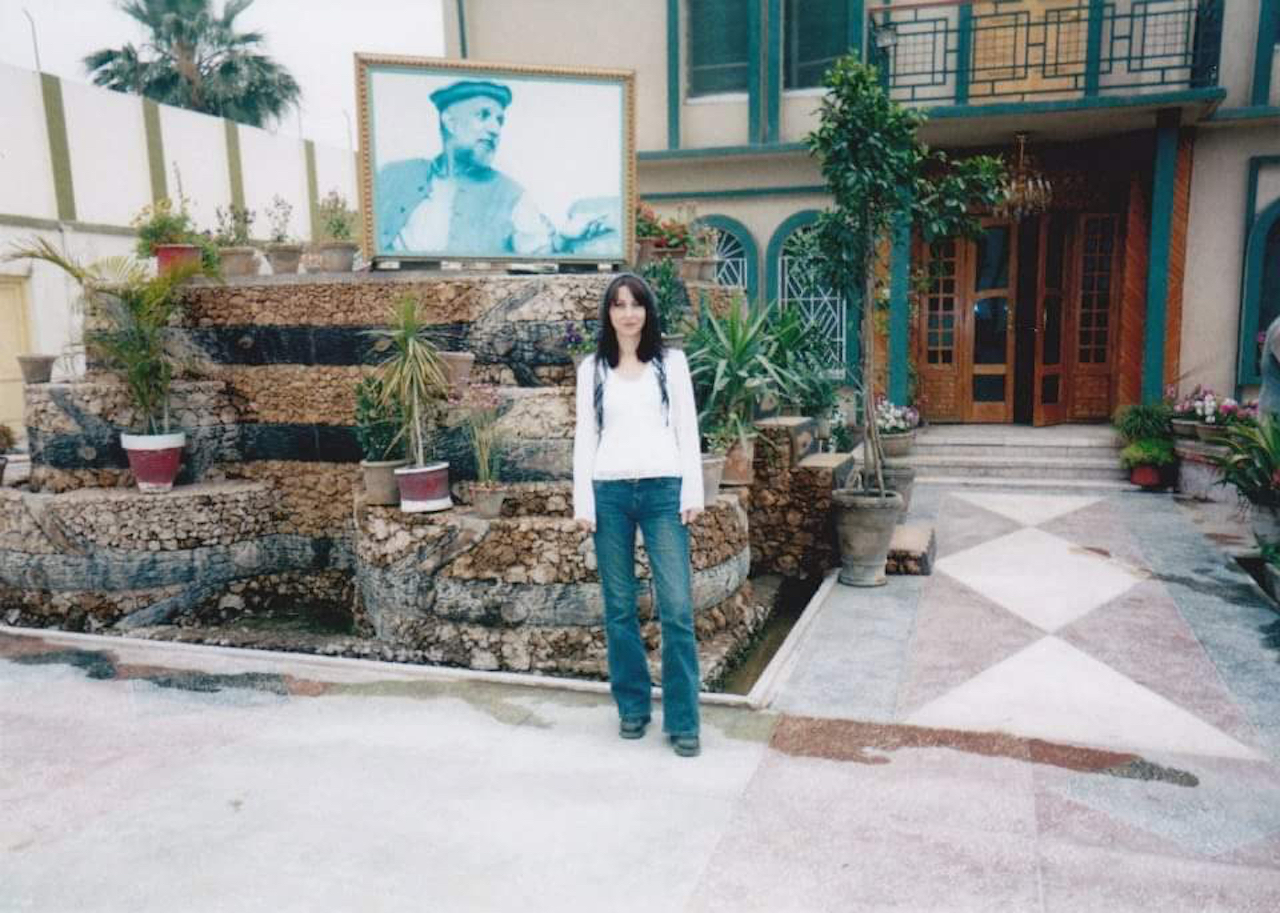
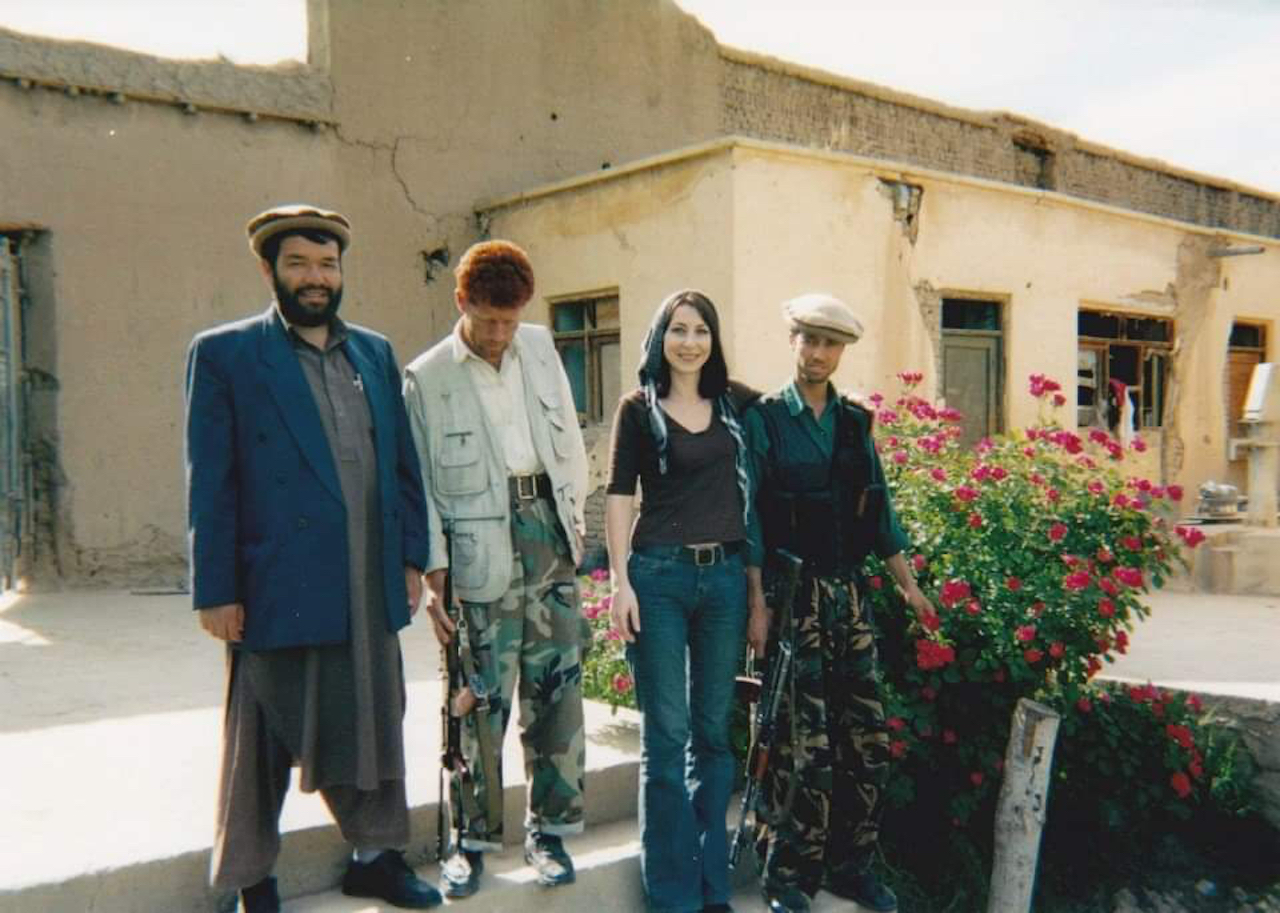
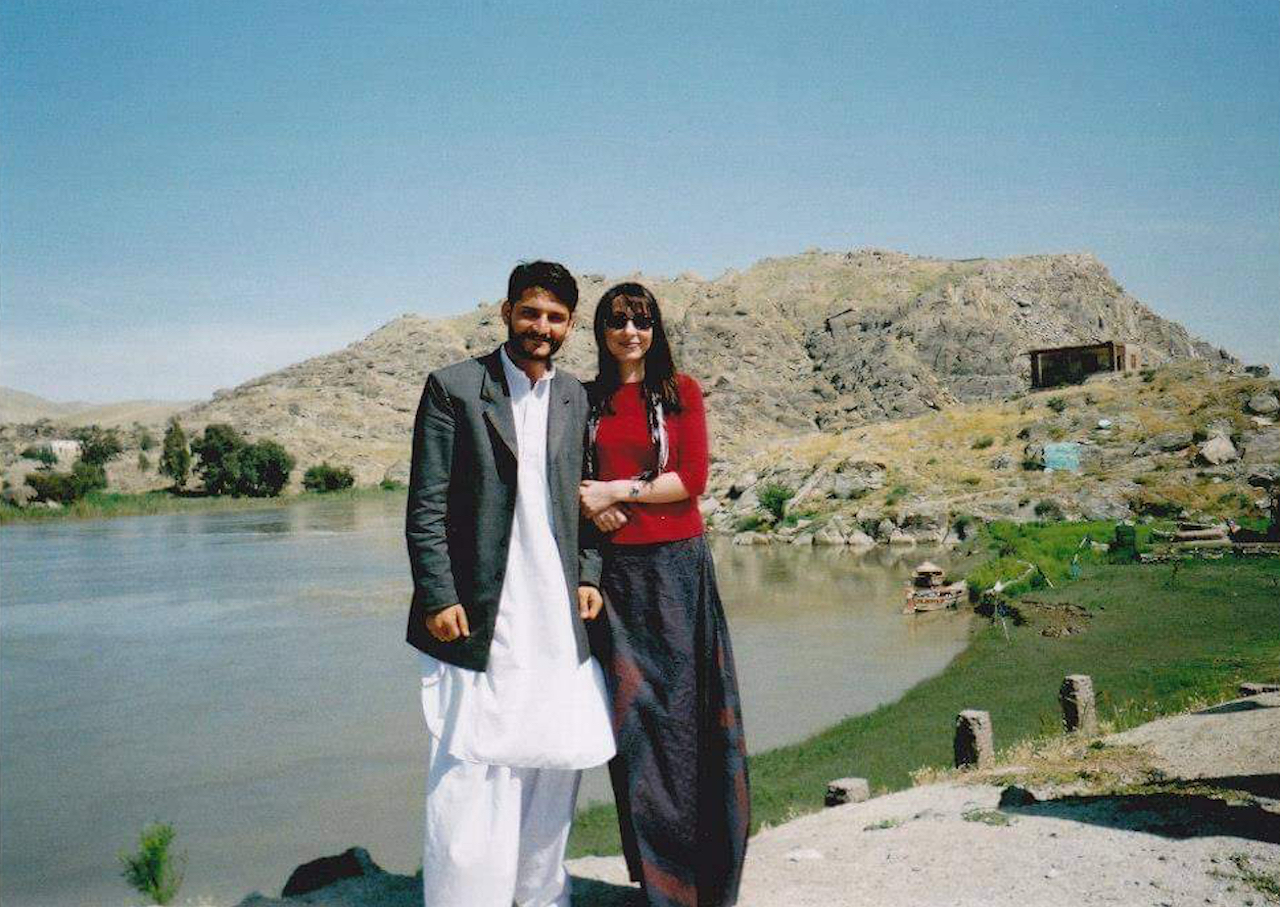
Top photo: Mountains in Afghanistan, Makalu/Pixabay. Other photos supplied by Andrea Busfield.
November 2020
ABOUT ANDREA BUSFIELD
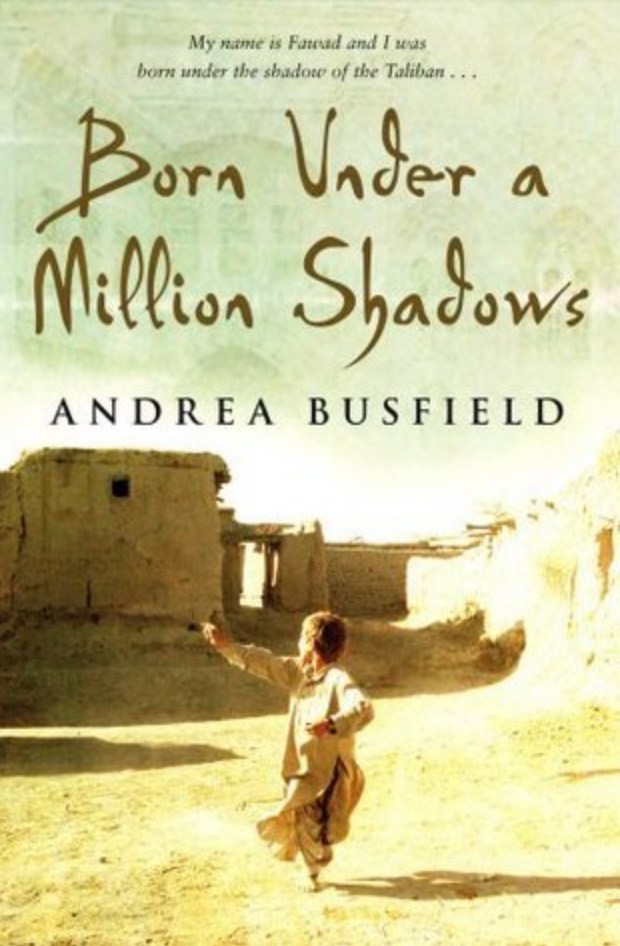 ANDREA BUSFIELD returned to Afghanistan after her assignments as a reporter for a UK tabloid newspaper. She worked in Kabul as an editor for NATO for three years.
ANDREA BUSFIELD returned to Afghanistan after her assignments as a reporter for a UK tabloid newspaper. She worked in Kabul as an editor for NATO for three years.
She is the best-selling author of a number of novels, including Born Under a Million Shadows, which is set in Afghanistan: “A moving tale of the triumph of the human spirit amidst heartbreaking tragedy, told through the eyes of a charming, impish, and wickedly observant Afghan boy… A big-hearted novel infused with crackling wit, Andrea Busfield’s brilliant debut captures the hope and humanity of the Afghan people and the foreigners who live among them.”
Her other works include Aphrodite’s War, set in Cyprus, and The Silence of Stone, set in Austria.
RECOMMENDED
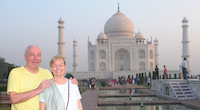 WELCOME TO OUR WORLD! Afaranwide’s home page – this is where you can find out about our latest posts and other highlights. READ MORE
WELCOME TO OUR WORLD! Afaranwide’s home page – this is where you can find out about our latest posts and other highlights. READ MORE
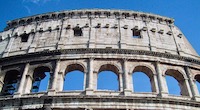 TOP 10 VIRTUAL ATTRACTIONS: Many of the world’s most popular tourists sites are closed because of the coronavirus crisis, but you can still visit them virtually while you’re self-isolating. READ MORE
TOP 10 VIRTUAL ATTRACTIONS: Many of the world’s most popular tourists sites are closed because of the coronavirus crisis, but you can still visit them virtually while you’re self-isolating. READ MORE
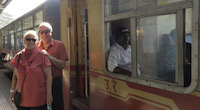 SHIMLA, QUEEN OF THE HILLS: Government officials once retreated to Shimla in the foothills of the Himalayas to escape India’s blazing hot summers. Now tourists make the same journey. READ MORE
SHIMLA, QUEEN OF THE HILLS: Government officials once retreated to Shimla in the foothills of the Himalayas to escape India’s blazing hot summers. Now tourists make the same journey. READ MORE
 TEN THINGS WE LEARNED: Our in-depth guide to creating a website, one step at a time. The costs, the mistakes – it’s what we wish we’d known when we started blogging. READ MORE
TEN THINGS WE LEARNED: Our in-depth guide to creating a website, one step at a time. The costs, the mistakes – it’s what we wish we’d known when we started blogging. READ MORE
 TROUBLED TIMES FOR EXPATS: Moving abroad can seem an idyllic prospect, but what happens when sudden upheavals or the inescapable realities of life intrude? READ MORE
TROUBLED TIMES FOR EXPATS: Moving abroad can seem an idyllic prospect, but what happens when sudden upheavals or the inescapable realities of life intrude? READ MORE
Disclosure: Afaranwide is an affiliate of leading travel operators such as Booking.com and Japan Rail Pass. If you purchase through our site we receive, at no additional cost to you, a small commission. We only work with companies we have used and recommend.
LET'S KEEP IN TOUCH!

ANDREA BUSFIELD
My Life-Changing Moment in the Hindu Kush Mountains
IN 2001, I travelled to Afghanistan to cover the “War on Terror” for the tabloid newspaper I worked for. I went armed with a sleeping bag, eight notebooks, a dozen pens, $10,000 in cash and no clue. Amazing then that it turned out to be one of the best experiences of my life.
I was living in London at the time and enjoyed the kind of trappings and lifestyle that often comes with a well-paid job in one of the most vibrant cities on earth. All of which meant I was ill prepared for glamping let alone a helicopter ride into a land lost in time.
Having flown to Dushanbe in neighbouring Tajikistan I had secured the safe passage of myself and my photographer into Afghanistan during an interview with the hugely charismatic Afghan leader, Haji Abdul Qadir.

The former governor of Jalalabad had teamed up with the Northern Alliance who had been waging a war against the Taliban since the mid-90s. Qadir was now waiting in the wings, ready to return to his country and his old job. Little did I know when I interviewed him, he would go on to become the Vice President of Afghanistan.
Anyway, after an hour spent chatting in his hotel suite, it quickly became apparent that I was lacking in the conflict-zone smarts of most war correspondents and he offered to take me and my photographer into his country.
A few days later, true to his word, Haji Qadir organised our transport to the airport where we scaled a ladder and hauled ourselves into an old Russian helicopter that had seen better days. Resplendent with bullet holes, the interior was charmingly rustic with wooden benches framing what appeared to be part of the engine.
Friends Began Praying
As the helicopter took off, my Afghan host and his friends immediately began praying. They didn’t stop until we touched down on Afghan soil.
Our point of entry was Khwaja Bahauddin, an area in the Northern Alliance-controlled north that appeared to be little more than a dustbowl with no sit-down toilets. Bundled into a battered Russian jeep, the light was fading fast and I remember little more than our headlights bouncing off high mud walls and the startled eyes of a few old men and their donkeys.
Once the sun disappeared, the night was as black as I’d ever known it thanks to a dust storm that had raged over the region for the past two days obscuring even the stars.

Entering some kind of military compound, my photographer and I were shown to a room with no beds or bathroom facilities, although it did come with a Japanese photojournalist who would be joining us on our trip to the frontline.
A couple of hours later, the Allies closed all airspace and began dropping their bombs on Taliban targets. I went to bed weary, wary and wondering what the hell I’d let myself in for.
The next day the dust lifted and once I’d cleaned my teeth, visited the local hole-in-the-ground and gone to the bazaar to equip myself with a headscarf and a transistor radio, we began a journey deeper into a country that would quickly carve a place into my heart as deep as any surgical incision. Afghanistan, in short, is breath-taking.
Cobalt Blue Skies
On leaving Khwaja Bahauddin, we wound our way up terracotta hills, climbing ever higher towards cobalt blue skies. Occasionally, the wheels of our jeep would lose their grip on the rubble roads emitting gasps of concern from my fellow travellers, but not me. This wasn’t bravado, I simply lack the right self-preservation gene to worry about what might be. Besides, our driver appeared to be of a fairly good age, and having survived thus far, I assumed he must know what he was doing.
As we travelled further into the country, we saw few signs of life beyond kids and old men. The women, I assume, were hidden behind the mud walls of the homes we passed, while the younger men must have left to form part of the war machine. So, it was old men, donkeys and the occasional bicycle.

For three days we travelled, mostly grabbing sleep in the back of the jeep – bent forwards to protect our heads from banging against the roof as we covered the, often challenging, terrain.
For a few hours in the dead of night, we stayed at a hotel in Fayzabad, which looked picture perfect when we pulled up, standing next to a raging river and lit by a huge moon and a sky full of stars. Once we’d crossed the bridge on foot and entered the premises, the shine quickly came off the place. However, there comes a point when you’re actually so tired, you simply don’t care about the state of the toilets or the lack of linen on the beds. I also had my sleeping bag. It was enough.
Sleeping Next to Kalashnikovs
On the second night of our journey, I remember stumbling into a building in the pitch dark and being wordlessly directed to a bed in the corner of a room. At the break of dawn, the call to prayer sounded and I opened my eyes to discover I was sharing the room with 40 men or more, all sleeping next to their Kalashnikovs.
However, it was another evening, after we had driven ever higher into the Hindu Kush mountains, slipping and sliding along the fabled Anjuman Pass, that I knew beyond all doubt that I was having a once-in-a-lifetime experience.


The Pass connects the northern province of Badakhshan to the Panjshir Valley, which lies a little north of Kabul. Some 4,430m above sea level, the road is hold-your-breath narrow and only accessible by 4x4s and donkeys. The cliff edge is sharp as a knife blade with falls that offer no hope of survival. And as this is a journey that lasts hours rather than minutes, it becomes easier to close your eyes than keep watching, and eventually I fell asleep.
Sometime later I was woken by the driver and our translator. They were stopping for tea and wanted to know whether their foreign guests would like to join them. Both my photographer and our Japanese friend declined the offer, preferring to sleep, and this was to be their big loss of the trip because once I stepped out of the jeep I found myself standing on top of the world.
Close to Magic
It was dusk and as far as the eye could see were mountains, their tops peaking above a bed of clouds, glowing bronze in the fading sun. The scene was as beautiful as anything I had ever encountered and it felt as close to magic as I’ve ever come. I was heading to a conflict zone and yet I was overwhelmed by a sense of peace. I was a minnow standing on the shoulders of giants and it struck me that this was the truth of the world – not the distorted parody of living that I had left behind and below.
A little in front of us was a small stone hut, no bigger than an outhouse, with a black curtain serving as a door. I walked inside – much to the surprise of the dark bearded gentlemen sat there, drinking tea by a small fire – and it felt like I was standing at the threshold of something new. Nearly two decades later, I can see I was right.
Afghanistan changed me. It opened my eyes to another desperate and yet richer reality and it made me a better person. Gradually, my goals and ambitions changed. The idea of living a contented life became the dream to strive for – and it started the moment I stepped out of a battered Russian jeep onto a bed of clouds hanging over one of the most dangerous countries in the world.




Top photo: Mountains in Afghanistan, Makalu/Pixabay. Other photos supplied by Andrea Busfield.
November 2020
ABOUT ANDREA BUSFIELD
 ANDREA BUSFIELD returned to Afghanistan after her assignments as a reporter for a UK tabloid newspaper. She worked in Kabul as an editor for NATO for three years.
ANDREA BUSFIELD returned to Afghanistan after her assignments as a reporter for a UK tabloid newspaper. She worked in Kabul as an editor for NATO for three years.
She is the best-selling author of a number of novels, including Born Under a Million Shadows, which is set in Afghanistan: “A moving tale of the triumph of the human spirit amidst heartbreaking tragedy, told through the eyes of a charming, impish, and wickedly observant Afghan boy… A big-hearted novel infused with crackling wit, Andrea Busfield’s brilliant debut captures the hope and humanity of the Afghan people and the foreigners who live among them.”
Her other works include Aphrodite’s War, set in Cyprus, and The Silence of Stone, set in Austria.
RECOMMENDED
 WELCOME TO OUR WORLD! Afaranwide’s home page – this is where you can find out about our latest posts and other highlights. READ MORE
WELCOME TO OUR WORLD! Afaranwide’s home page – this is where you can find out about our latest posts and other highlights. READ MORE
 TOP 10 VIRTUAL ATTRACTIONS: Many of the world’s most popular tourists sites are closed because of the coronavirus crisis, but you can still visit them virtually while you’re self-isolating. READ MORE
TOP 10 VIRTUAL ATTRACTIONS: Many of the world’s most popular tourists sites are closed because of the coronavirus crisis, but you can still visit them virtually while you’re self-isolating. READ MORE
 SHIMLA, QUEEN OF THE HILLS: Government officials once retreated to Shimla in the foothills of the Himalayas to escape India’s blazing hot summers. Now tourists make the same journey. READ MORE
SHIMLA, QUEEN OF THE HILLS: Government officials once retreated to Shimla in the foothills of the Himalayas to escape India’s blazing hot summers. Now tourists make the same journey. READ MORE
 TEN THINGS WE LEARNED: Our in-depth guide to creating a website, one step at a time. The costs, the mistakes – it’s what we wish we’d known when we started blogging. READ MORE
TEN THINGS WE LEARNED: Our in-depth guide to creating a website, one step at a time. The costs, the mistakes – it’s what we wish we’d known when we started blogging. READ MORE
 TROUBLED TIMES FOR EXPATS: Moving abroad can seem an idyllic prospect, but what happens when sudden upheavals or the inescapable realities of life intrude? READ MORE
TROUBLED TIMES FOR EXPATS: Moving abroad can seem an idyllic prospect, but what happens when sudden upheavals or the inescapable realities of life intrude? READ MORE
Disclosure: Afaranwide is an affiliate of leading travel operators such as Booking.com and Japan Rail Pass. If you purchase through our site we receive, at no additional cost to you, a small commission. We only work with companies we have used and recommend.
LET'S KEEP IN TOUCH!
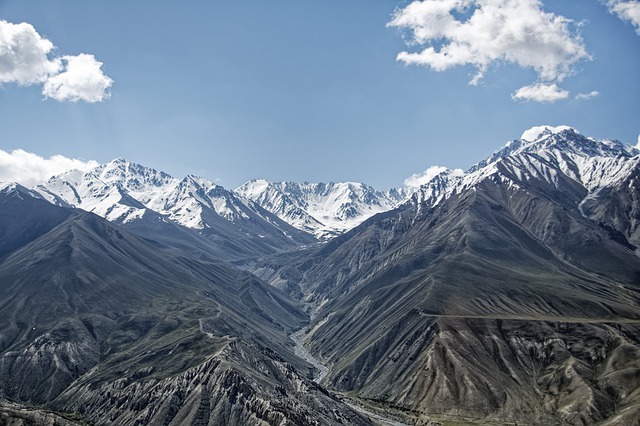
In a World Gone Mad,
See More of It
My Life-Changing Moment in the Hindu Kush Mountains

ANDREA BUSFIELD
IN 2001, I travelled to Afghanistan to cover the “War on Terror” for the tabloid newspaper I worked for. I went armed with a sleeping bag, eight notebooks, a dozen pens, $10,000 in cash and no clue.
Amazing then that it turned out to be one of the best experiences of my life. I was living in London at the time and enjoyed the kind of trappings and lifestyle that often comes with a well-paid job in one of the most vibrant cities on earth. All of which meant I was ill prepared for glamping let alone a helicopter ride into a land lost in time.
Having flown to Dushanbe in neighbouring Tajikistan I had secured the safe passage of myself and my photographer into Afghanistan during an interview with the hugely charismatic Afghan leader, Haji Abdul Qadir.

The former governor of Jalalabad had teamed up with the Northern Alliance who had been waging a war against the Taliban since the mid-90s. Qadir was now waiting in the wings, ready to return to his country and his old job. Little did I know when I interviewed him, he would go on to become the Vice President of Afghanistan.
Anyway, after an hour spent chatting in his hotel suite, it quickly became apparent that I was lacking in the conflict-zone smarts of most war correspondents and he offered to take me and my photographer into his country.
A few days later, true to his word, Haji Qadir organised our transport to the airport where we scaled a ladder and hauled ourselves into an old Russian helicopter that had seen better days. Resplendent with bullet holes, the interior was charmingly rustic with wooden benches framing what appeared to be part of the engine.
Friends Began Praying
As the helicopter took off, my Afghan host and his friends immediately began praying. They didn’t stop until we touched down on Afghan soil.
Our point of entry was Khwaja Bahauddin, an area in the Northern Alliance-controlled north that appeared to be little more than a dustbowl with no sit-down toilets. Bundled into a battered Russian jeep, the light was fading fast and I remember little more than our headlights bouncing off high mud walls and the startled eyes of a few old men and their donkeys.
Once the sun disappeared, the night was as black as I’d ever known it thanks to a dust storm that had raged over the region for the past two days obscuring even the stars.

Entering some kind of military compound, my photographer and I were shown to a room with no beds or bathroom facilities, although it did come with a Japanese photojournalist who would be joining us on our trip to the frontline.
A couple of hours later, the Allies closed all airspace and began dropping their bombs on Taliban targets. I went to bed weary, wary and wondering what the hell I’d let myself in for.
The next day the dust lifted and once I’d cleaned my teeth, visited the local hole-in-the-ground and gone to the bazaar to equip myself with a headscarf and a transistor radio, we began a journey deeper into a country that would quickly carve a place into my heart as deep as any surgical incision. Afghanistan, in short, is breath-taking.
Cobalt Blue Skies
On leaving Khwaja Bahauddin, we wound our way up terracotta hills, climbing ever higher towards cobalt blue skies. Occasionally, the wheels of our jeep would lose their grip on the rubble roads emitting gasps of concern from my fellow travellers, but not me.
This wasn’t bravado, I simply lack the right self-preservation gene to worry about what might be. Besides, our driver appeared to be of a fairly good age, and having survived thus far, I assumed he must know what he was doing.
As we travelled further into the country, we saw few signs of life beyond kids and old men. The women, I assume, were hidden behind the mud walls of the homes we passed, while the younger men must have left to form part of the war machine. So, it was old men, donkeys and the occasional bicycle.

For three days we travelled, mostly grabbing sleep in the back of the jeep – bent forwards to protect our heads from banging against the roof as we covered the, often challenging, terrain.
For a few hours in the dead of night, we stayed at a hotel in Fayzabad, which looked picture perfect when we pulled up, standing next to a raging river and lit by a huge moon and a sky full of stars. Once we’d crossed the bridge on foot and entered the premises, the shine quickly came off the place.
However, there comes a point when you’re actually so tired, you simply don’t care about the state of the toilets or the lack of linen on the beds. I also had my sleeping bag. It was enough.
Sleeping Next to Kalashnikovs
On the second night of our journey, I remember stumbling into a building in the pitch dark and being wordlessly directed to a bed in the corner of a room.
At the break of dawn, the call to prayer sounded and I opened my eyes to discover I was sharing the room with 40 men or more, all sleeping next to their Kalashnikovs.
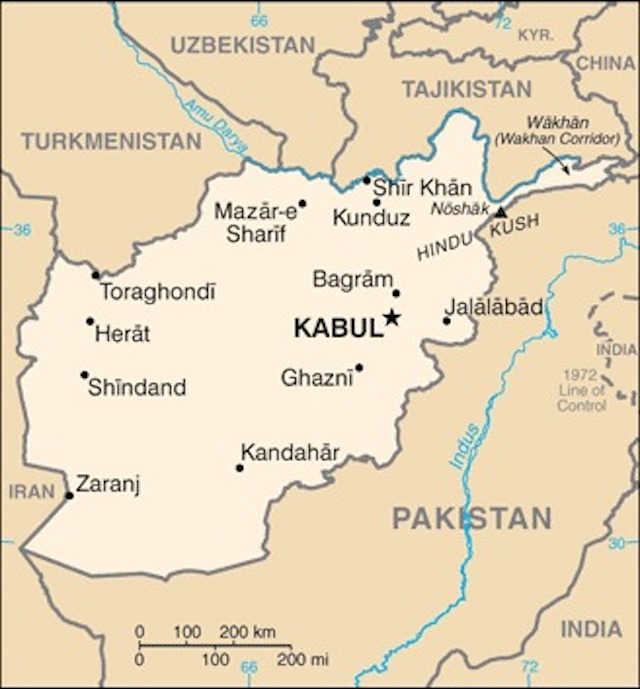
However, it was another evening, after we had driven ever higher into the Hindu Kush mountains, slipping and sliding along the fabled Anjuman Pass, that I knew beyond all doubt that I was having a once-in-a-lifetime experience.

The Pass connects the northern province of Badakhshan to the Panjshir Valley, which lies a little north of Kabul. Some 4,430m above sea level, the road is hold-your-breath narrow and only accessible by 4x4s and donkeys.
The cliff edge is sharp as a knife blade with falls that offer no hope of survival. And as this is a journey that lasts hours rather than minutes, it becomes easier to close your eyes than keep watching, and eventually I fell asleep.

Sometime later I was woken by the driver and our translator. They were stopping for tea and wanted to know whether their foreign guests would like to join them.
Both my photographer and our Japanese friend declined the offer, preferring to sleep, and this was to be their big loss of the trip because once I stepped out of the jeep I found myself standing on top of the world.
Close to Magic
It was dusk and as far as the eye could see were mountains, their tops peaking above a bed of clouds, glowing bronze in the fading sun. The scene was as beautiful as anything I had ever encountered and it felt as close to magic as I’ve ever come.
I was heading to a conflict zone and yet I was overwhelmed by a sense of peace. I was a minnow standing on the shoulders of giants and it struck me that this was the truth of the world – not the distorted parody of living that I had left behind and below.
A little in front of us was a small stone hut, no bigger than an outhouse, with a black curtain serving as a door. I walked inside – much to the surprise of the dark bearded gentlemen sat there, drinking tea by a small fire – and it felt like I was standing at the threshold of something new. Nearly two decades later, I can see I was right.
Afghanistan changed me. It opened my eyes to another desperate and yet richer reality and it made me a better person. Gradually, my goals and ambitions changed.
The idea of living a contented life became the dream to strive for – and it started the moment I stepped out of a battered Russian jeep onto a bed of clouds hanging over one of the most dangerous countries in the world.
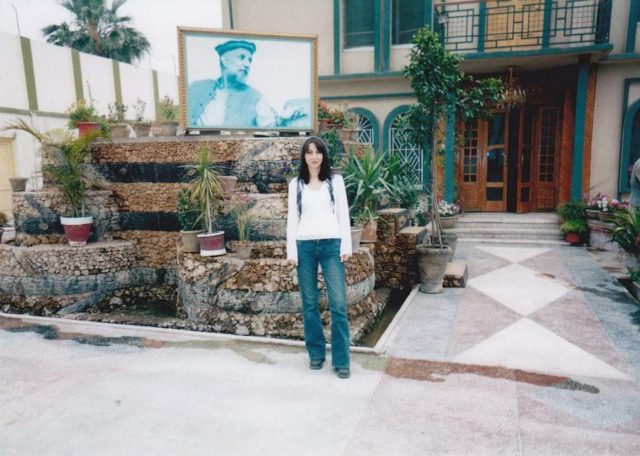
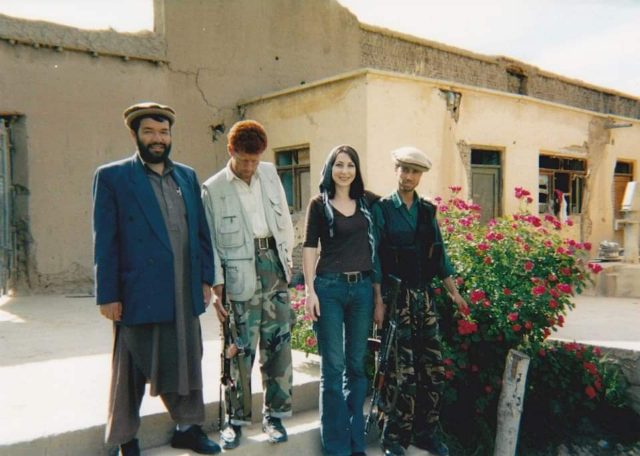
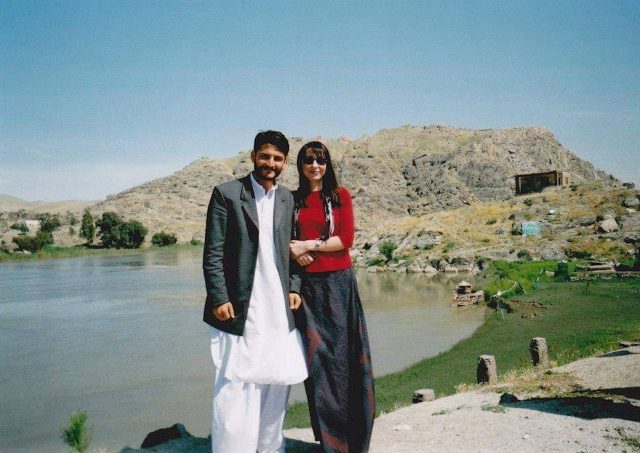
Top photo: Mountains in Afghanistan, Makalu/Pixabay. Other photos supplied by Andrea Busfield.
November 2020
ABOUT ANDREA BUSFIELD

ANDREA BUSFIELD returned to Afghanistan after her assignments as a reporter for a UK tabloid newspaper. She worked in Kabul as an editor for NATO for three years.
She is the best-selling author of a number of novels, including Born Under a Million Shadows, which is set in Afghanistan: “A moving tale of the triumph of the human spirit amidst heartbreaking tragedy, told through the eyes of a charming, impish, and wickedly observant Afghan boy…
“A big-hearted novel infused with crackling wit, Andrea Busfield’s brilliant debut captures the hope and humanity of the Afghan people and the foreigners who live among them.”
Her other works include Aphrodite’s War, set in Cyprus, and The Silence of Stone, set in Austria.
RECOMMENDED
 WELCOME TO OUR WORLD! Afaranwide’s home page – this is where you can find out about our latest posts and other highlights. READ MORE
WELCOME TO OUR WORLD! Afaranwide’s home page – this is where you can find out about our latest posts and other highlights. READ MORE
 TOP 10 VIRTUAL ATTRACTIONS: Many of the world’s most popular tourists sites are closed because of the coronavirus crisis, but you can still visit them virtually while you’re self-isolating. READ MORE
TOP 10 VIRTUAL ATTRACTIONS: Many of the world’s most popular tourists sites are closed because of the coronavirus crisis, but you can still visit them virtually while you’re self-isolating. READ MORE
 SHIMLA, QUEEN OF THE HILLS: Government officials once retreated to Shimla in the foothills of the Himalayas to escape India’s blazing hot summers. Now tourists make the same journey. READ MORE
SHIMLA, QUEEN OF THE HILLS: Government officials once retreated to Shimla in the foothills of the Himalayas to escape India’s blazing hot summers. Now tourists make the same journey. READ MORE
 TEN THINGS WE LEARNED: Our in-depth guide to creating a website, one step at a time. The costs, the mistakes – it’s what we wish we’d known when we started blogging. READ MORE
TEN THINGS WE LEARNED: Our in-depth guide to creating a website, one step at a time. The costs, the mistakes – it’s what we wish we’d known when we started blogging. READ MORE
 TROUBLED TIMES FOR EXPATS: Moving abroad can seem an idyllic prospect, but what happens when sudden upheavals or the inescapable realities of life intrude? READ MORE
TROUBLED TIMES FOR EXPATS: Moving abroad can seem an idyllic prospect, but what happens when sudden upheavals or the inescapable realities of life intrude? READ MORE
Disclosure: Afaranwide is an affiliate of leading travel operators such as Booking.com and Japan Rail Pass. If you purchase through our site we receive, at no additional cost to you, a small commission. We only work with companies we have used and recommend.




Superb article!